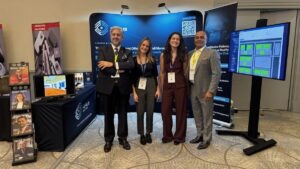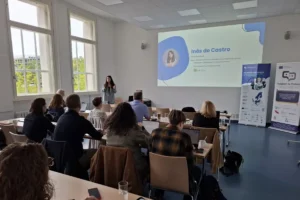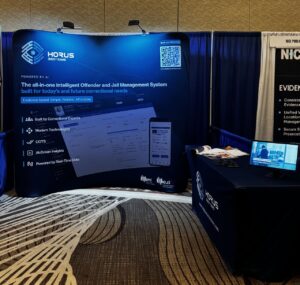From September 9–10, 2025, IPS attended the Justice, Public Safety, and Security Artificial Intelligence (AI) Summit organised by the IJIS Institute in Virginia, Colorado. The gathering served for government officials and industry experts to exchange insights on how AI can be applied in the fields of justice and public safety, showcasing its potential to drive innovation and positive impact on our society.
Organised with the support of the Miller Center on Policing and Community Resiliency at Rutgers University, the Global Consortium of Law Enforcement Training Executives, the University of Ottawa’s Professional Development Institute, and other international associations, the event hosted discussions centred on a range of AI-related themes, with particular emphasis on its applications in policing, corrections, and broader public safety contexts. Participants shared knowledge, examined emerging challenges, and identified opportunities where AI can improve the effectiveness and resilience of justice and security systems.
On the second day, the summit featured a series of presentations covering topics that included the International JPSS Perspective, the use of AI in Courts and Prosecution, AI and Funding, and AI Security and Standards. The day concluded with a session on the Legislative Perspective, offering insights into the regulatory frameworks around AI implementation.

IPS was represented by Pedro das Neves, CEO of IPS, and Sam Erry, Strategic Board Advisor. Aside from the public event, Pedro also joined the in-person committee meetings of the IJIS Institute, where he serves on both the Corrections Committee and the Artificial Intelligence Working Group.
The discussions at the summit are central to IPS’s work. Across different countries, IPS is leading efforts to use AI in ways that support daily operations while addressing fairness and accountability, two of the main points raised at the event.
Through HORUS 360 iOMS, IPS is helping justice systems manage the full inmate lifecycle, from intake to release and community supervision. The platform brings together real-time data, automated workflows, and built-in risk and needs assessments, using AI to analyse patterns and support faster, better-informed decisions at every stage. This reduces fragmentation, improves consistency, and ensures that each action is grounded in security, accountability, and rehabilitative goals.
With advanced tools for tracking individuals, managing movement, and monitoring dynamic security indicators, HORUS strengthens institutional safety while giving staff clear, up-to-date information to respond to incidents, assess threats, and maintain order. At the same time, its AI-driven analytics support personalised sentence planning, guide the delivery of interventions, and link data between custody and community supervision, helping systems coordinate work more effectively, promote reintegration, and lower the risk of reoffending.
In parallel, the IPS-partnered FAIR-PReSONS project is developing and testing AI-based recidivism models designed to reduce bias, using gender-aware and non-discriminatory methods that meet EU legal and ethical requirements. The project is digitising and structuring large volumes of prison and offence-management data from partner countries, creating a code of conduct for legal professionals, and delivering training to judges, prosecutors, and corrections staff on the safe use of these models.
By linking operational tools like HORUS 360 iOMS with research and safeguards from FAIR-PReSONS, IPS is helping shape how AI can be introduced in justice settings—an approach strongly aligned with the priorities discussed at the IJIS summit.
Related news

Shaping the future of rehabilitation with immersive tools and smart systems at ICPA 2025
Read More »






